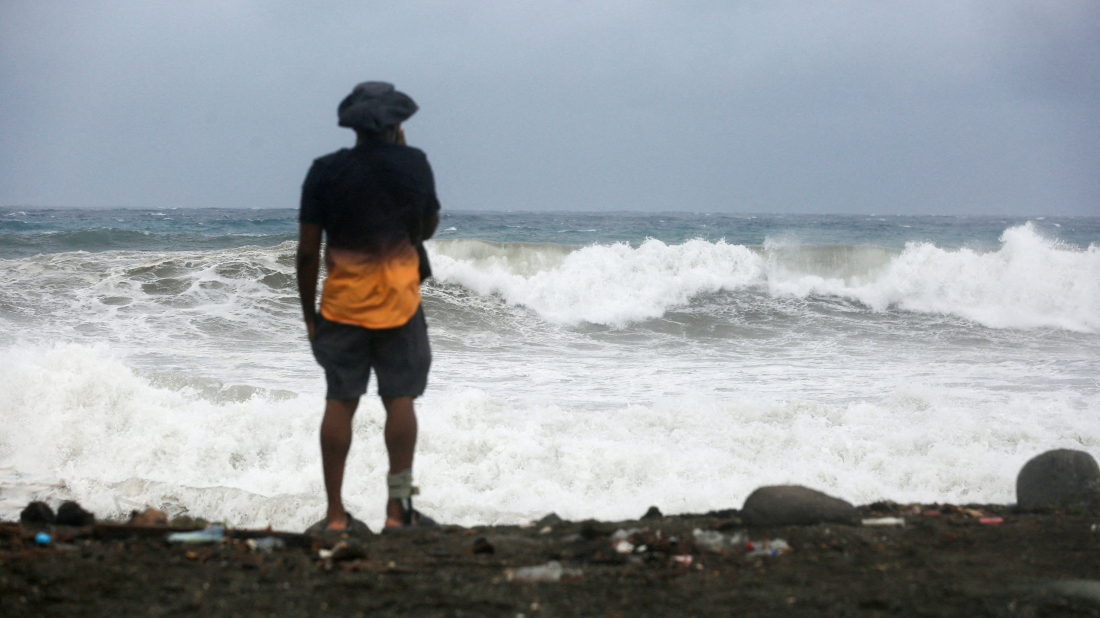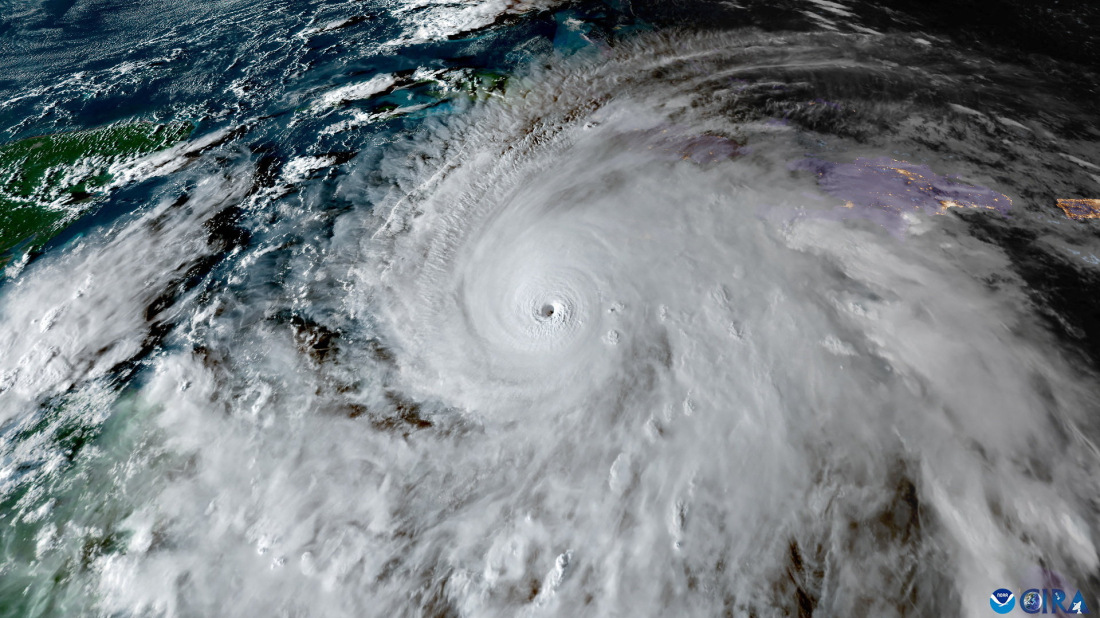Rubio says U.S. does not challenge European assessment of Navalny poisoning
U.S. Secretary of State Marco Rubio on Sunday (15 February) called "troubling" a report by five European allies blaming Russia for killing late Kremli...

Hurricane Melissa has made landfall in south-western Jamaica as a category five storm, unleashing violent winds, torrential rain and life-threatening floods across the island.
The U.S. National Hurricane Center (NHC) warned that Melissa presents ‘an extremely dangerous and life-threatening situation’, with catastrophic winds, flash flooding and storm surges battering coastal areas. The storm struck near the town of New Hope, packing maximum sustained winds of 185 mph (295 km/h) before easing slightly to 165 mph (270 km/h) as it tore inland.
Authorities say nearly one-third of Jamaica is without power, while fallen trees and landslides have blocked major roads. Energy Minister Daryl Vaz confirmed widespread outages, and emergency crews are struggling to respond amid worsening conditions.
Local Government Minister Desmond McKenzie urged residents to remain indoors, saying: ‘Don’t bet against Melissa – it is a bet we can’t win.’
The Red Cross estimates that up to 1.5 million people could be directly affected. Communications are limited, with some areas relying on satellite phones to relay information.
Forecasters say storm surges could reach 13 feet (3.9 metres), accompanied by ‘large and destructive waves’. The NHC also warned of ‘total structural failure’ for some buildings near the storm’s core.
Melissa, now the most powerful storm recorded globally this year, is expected to move towards Cuba overnight before sweeping across the Bahamas on Wednesday.
Meteorologists say the hurricane’s central pressure dropped to 892 millibars at landfall — one of the lowest ever recorded in the Atlantic — making Melissa among the most intense storms in history, surpassing even Hurricane Katrina’s 902 mb reading in 2005.
Comparisons are also being drawn to Hurricane Gilbert in 1988, which devastated Jamaica as a category three storm, killing 49 people. But experts warn that Melissa’s strength and rapid intensification — fuelled by unusually warm Caribbean waters — make it unlike anything the island has faced in decades.
So far, three people have died in Jamaica as the National Hurricane Center warns of catastrophic coniditions including storm surges, winds and significant infrastructural damage.

How climate change is fuelling Hurricane Melissa
Scientists say Melissa is the fourth storm in the Atlantic this year to undergo rapid intensification, pointing to human induced climate crisis which warms the oceans as a potential cause.
Establishing a direct link between human induced climate crisis and the dynamic nature and intensity of Hurricane Melissa is complicated.
While not directly responsible for its cause, certain results of climate change can give rise to the storm's rapid evolution from a tropical storm to a category 5 Hurricane with the latest reported windspeeds of 180mph.
Dr Emily Vosper, a Senior Research Associate in Climate Extremes from the University of Bristol said, "In the Caribbean, severe rainfall hurricanes, such as Hurricane Maria which hit Puerto Rico in 2017, are twice as likely to occur1 in the 2C warmer world compared to a 1.5C world.
This is driven by the increased water holding capacity of the atmosphere by a rate of 7% per 1C of warming. This relation is known as the Clausius-Clapeyron effect and is observed in extreme rainfall. Hurricanes such as Melissa will therefore carry more rainfall than pre-industrial times as a result of climate change." she said.
Vosper added that Hurricane Melissa is particularly hazardous due to its slow-moving nature known as "stalling" which means that the windspeed and power will cause a great volume of destruction as it moves slowly through Jamaica.
In addition, the International Panel on Climate Change (IPCC) in their latest assessment report, concluded that "the proportion of Category 4–5 Tropical Cyclones will very likely increase globally with warming".
This means that the frequency of intense hurricanes will continue to increase as the world gets warmer.
The report also found that "Human-caused climate change is already affecting many weather and climate extremes in every region across the globe."
It added that vulnerable communities who have historically contributed the least to current climate change are disproportionately affected.
It urged "deep, rapid and sustained mitigation and accelerated implementation of adaptation actions in this decade which would reduce projected losses and damages for humans and ecosystems".
The United Nations has also said that only 64 countries have submitted new plans to cut carbon emissions despite all being required to so ahead of next month's COP30 summit next month in Brazil.
U.S. Ambassador to NATO Matthew Whitaker said China has the power to bring an end to Russia’s war in Ukraine, arguing that Beijing is enabling Moscow’s military campaign.
American figure skating star Ilia Malinin endured a dramatic collapse in the men’s free skate on Friday night, falling twice and tumbling out of medal contention at the Milan Cortina Winter Olympics as Kazakhstan’s Mikhail Shaidorov surged to a surprise gold medal.
“Respected and feared globally,” U.S. President Donald Trump told troops at Fort Bragg on Friday (13 February), framing America’s renewed strength against to mounting pressure on Iran amid stalled nuclear talks.
Dubai-based global ports operator DP World said on Friday that its long-serving chairman and chief executive, Sultan Ahmed Bin Sulayem, has stepped down following mounting pressure linked to alleged ties to disgraced financier Jeffrey Epstein.
Speaking at Munich Security Conference, Ukrainian foreign minister Andrii Sybiha calls for decisive steps ahead of expected Geneva talks
The administration of U.S. President Donald Trump on Thursday (12 February) announced the repeal of a scientific finding that greenhouse gas emissions endanger human health, and eliminated federal tailpipe emissions standards for cars and trucks.
Tropical Cyclone Gezani has killed at least 31 people and left four others missing after tearing through eastern Madagascar, the government said on Wednesday, with the island nation’s second-largest city bearing the brunt of the destruction.
Rivers and reservoirs across Spain and Portugal were on the verge of overflowing on Wednesday as a new weather front pounded the Iberian peninsula, compounding damage from last week's Storm Kristin.
Morocco has evacuated more than 100,000 people from four provinces after heavy rainfall triggered flash floods across several northern regions, the Interior Ministry said on Wednesday.
Greenland registered its warmest January on record, sharpening concerns over how fast-rising Arctic temperatures are reshaping core parts of the island’s economy.
You can download the AnewZ application from Play Store and the App Store.

What is your opinion on this topic?
Leave the first comment